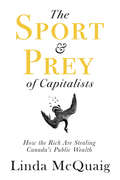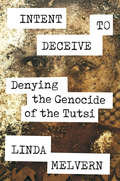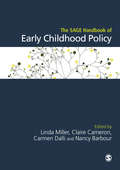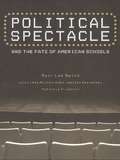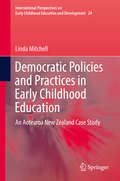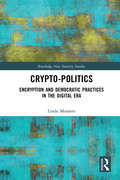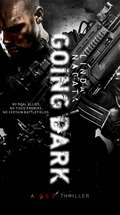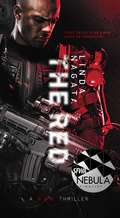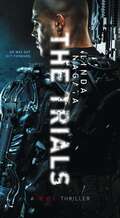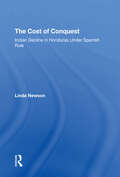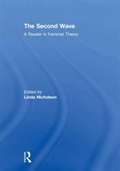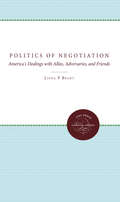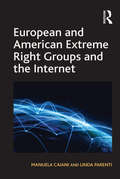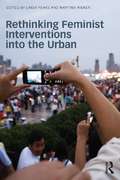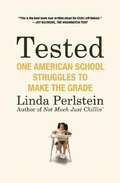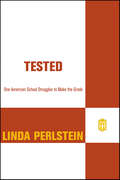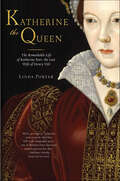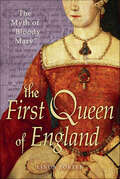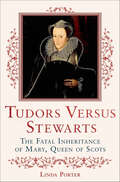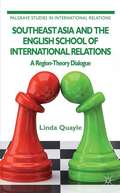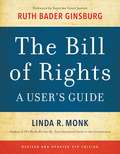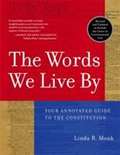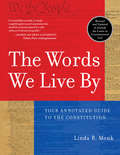- Table View
- List View
The Sport and Prey of Capitalists: How the Rich Are Stealing Canada’s Public Wealth
by Linda McQuaigWhy are we selling off the impressive public enterprises we often battled as a nation to create? In the early 1900s, thousands of Canadians battled wealthy interests, winning control of Niagara Falls and creating a public power company. Another popular movement succeeded in creating Canada’s public broadcasting system to counter American dominance of the airwaves. And a Canadian doctor established a publicly owned laboratory that saved countless lives by producing affordable medications, contributing to medical breakthroughs and helping to eradicate smallpox throughout the world. But in recent decades, we have allowed our inspiring public enterprises to be privatized and our vital public programs downsized, leaving us increasingly dominated by the forces of private greed that rule the marketplace. In The Sport and Prey of Capitalists, Linda McQuaig challenges the dogma of privatization, which has defined our political era. She argues that now more than ever, as we grapple with climate change and income inequality, we need to expand, not shrink, our public sphere.
Intent to Deceive: Denying the Rwandan Genocide
by Linda MelvernA shocking exposé of genocide denialIt is twenty-five years since the 1994 genocide of the Tutsi of Rwanda when in the course of three terrible months more than 1 million people were murdered. In the intervening years a pernicious campaign has been waged by the perpetrators to deny this crime, with attempts to falsify history and blame the victims for their fate. Facts are reversed, fake news promulgated, and phoney science given credence. Intent to Deceive tells the story of this campaign of genocide denial from its origins with those who planned the massacres. With unprecedented access to government archives including in Rwanda Linda Melvern explains how, from the moment the killers seized the power of the state, they determined to distort reality of events. Disinformation was an integral part of their genocidal conspiracy. The génocidaires and their supporters continue to peddle falsehoods. These masters of deceit have found new and receptive audiences, have fooled gullible journalists and unwary academics. With their seemingly sound research methods, the Rwandan génocidaires continue to pose a threat, especially to those who might not be aware of the true nature of their crime. The book is a testament to the survivors who still live the horrors of the past. Denial causes them the gravest offence and ensures that the crime continues. This is a call for justice that remains perpetually delayed.
World Organizations United Nations
by Linda MelvernAn introduction to get readers to faraway countries and people, as each organization dedicates itself to issues such as poverty, pollution, human rights, and world peace.
The SAGE Handbook of Early Childhood Policy
by Linda Miller Professor Claire Cameron Professor Carmen Dalli Nancy BarbourRecent authoritative evidence suggests that an estimated 200 million children under five fail to achieve their developmental potential due to factors including poor health and nutrition and the lack of stable high quality care. A significant number of the world’s children today lack the basic rights to health, development and protection. In light of such statistics, early childhood services for young children have expanded around the world. The SAGE Handbook of Early Childhood Policy draws critical attention to policy in Early Childhood Education and Care (ECEC) its relationship to service provision and its impact on the lives of children and families. The perspectives of leading academics and researchers from Europe, North America, South America, Africa, Australasia and Asia have been arranged around five key themes: Part 1: The Relationship Between Research, Policy And Practice: Country Case Studies Part 2: Equitable Early Childhood Services: Intervention to Improve Children’s Life Chances Part 3: Extending Practice: The Role of Early Childhood Services In Family Support Part 4: Participation, Rights and Diversity Part 5: Future Directions for Early Childhood Policy This handbook is essential reading for practitioners, stakeholders and others committed to working within early years services to achieve an awareness of policy and its implications for services and practice.
The SAGE Handbook of Early Childhood Policy
by Linda Miller Professor Claire Cameron Professor Carmen Dalli Nancy BarbourRecent authoritative evidence suggests that an estimated 200 million children under five fail to achieve their developmental potential due to factors including poor health and nutrition and the lack of stable high quality care. A significant number of the world’s children today lack the basic rights to health, development and protection. In light of such statistics, early childhood services for young children have expanded around the world. The SAGE Handbook of Early Childhood Policy draws critical attention to policy in Early Childhood Education and Care (ECEC) its relationship to service provision and its impact on the lives of children and families. The perspectives of leading academics and researchers from Europe, North America, South America, Africa, Australasia and Asia have been arranged around five key themes: Part 1: The Relationship Between Research, Policy And Practice: Country Case Studies Part 2: Equitable Early Childhood Services: Intervention to Improve Children’s Life Chances Part 3: Extending Practice: The Role of Early Childhood Services In Family Support Part 4: Participation, Rights and Diversity Part 5: Future Directions for Early Childhood Policy This handbook is essential reading for practitioners, stakeholders and others committed to working within early years services to achieve an awareness of policy and its implications for services and practice.
Political Spectacle and the Fate of American Schools (Critical Social Thought)
by Mary Lee Smith Linda Miller-Kahn Walter Heinecke Patricia F. JarvisThe authors argue that the most influential and well-known educational policy programs in the past 30 years are not based on democratic consensus, but are instead formulated by the political community as symbolic efforts meant to generate personal partisan gain.
Democratic Policies and Practices in Early Childhood Education: An Aotearoa New Zealand Case Study (International Perspectives on Early Childhood Education and Development #24)
by Linda MitchellThis book uses case studies of Aotearoa New Zealand policy formulation and practice to explore early childhood education and care (ECEC) as a site for democratic citizenship and social justice. Addressing fundamental questions about the purpose of education, it argues for explicit values focusing on children and childhood as a basis for ECEC policy to replace discourses of economic investment and child vulnerability that are dominant within policy goals in many countries. A commitment to democracy and equity is a good place to start. Aotearoa New Zealand is of special interest because of its world-renowned ECE curriculum, Te Whāriki, which is based on principles of social justice, respect for rights and an aim to support children growing up in a democracy. The curriculum upholds Māori rights to tino rangatiratanga (absolute authority over their lives and resources). Yet, Aotearoa New Zealand’s extreme market policies and harsh labour laws during recent periods run contrary to ideals of democracy and are puzzlingly inconsistent with curriculum principles. The book starts with an analysis and critique of global trends in ECEC in countries that share capitalist mixed economies of welfare, and where competition and marketisation have become dominant principles. It then analyses ideas about children, childhood and ECEC within a framework of democracy, going back to the Athenean origins of democracy and including recent literature on meanings and traditions of democracy in education. The book uses vivid examples from researching curriculum, pedagogy and assessment practices within Aotearoa New Zealand ECEC settings and collective action to influence policy change in order to illustrate opportunities for democratic education. It concludes by examining what conditions might be needed for integrated and democratic ECEC provision in Aotearoa New Zealand, and what changes are necessary for the future. It offers a compass not a map; it points to promising directions and provides insights into issues in ECEC policy and practice that are of current global concern.
Crypto-Politics: Encryption and Democratic Practices in the Digital Era (Routledge New Security Studies)
by Linda MonseesThis book examines current debates about the politics of technology and the future of democratic practices in the digital era. The volume centres on the debates on digital encryption in Germany and the USA, during the aftermath of Edward Snowden’s leaks, which revolved around the value of privacy and the legitimacy of surveillance practices. Using a discourse analysis of mass media and specialist debates, it shows how these are closely interlinked with technological controversies and how, as a result, contestation emerges not within one public sphere but within multiple expert circles. The book develops the notion of ‘publicness’ in order to grasp the political significance of these controversies, thereby making an innovative contribution to Critical Security Studies by introducing digital encryption as an important site for understanding the broader debates on cyber security and surveillance. This book will be of much interest to students of critical security studies, science and technology studies, and International Relations.
Going Dark (The Red Trilogy #3)
by Linda NagataIn the third book in The Red Trilogy, former Army Lt. James Shelley becomes a black ops sniper working for the Red--a suspected rogue artificial intelligence that is ripped from today's headlines.James Shelley has left his lover, Delphi, and his companion-in-arms, Jayne Vasquez, with a fortune acquired from a fallen oligarch. They believe him to be dead, and he doesn't try to set the record straight. His long-running question has been answered: There are other soldiers like him who have served the purposes of the Red--and he has accepted his place among them. As a soldier of the Red he pursues covert missions designed to nudge history away from existential threats--but that doesn't mean the world is growing more orderly. It's only in the froth of a "managed chaos" that human potential can grow and thrive. Shelley's missions eventually take him into orbit--and into conflict with those he loves--Delphi and Jaynie--who are determined to escape the influence of the Red.
The Red: First Light (The Red Trilogy #1)
by Linda NagataA Publishers Weekly Best Book of 2015 Reality TV and advanced technology make for high drama in this political thriller that combines the military action of Zero Dark Thirty with the classic science fiction of The Forever War.Lieutenant James Shelley, who has an uncanny knack for premeditating danger, leads a squad of advanced US Army military tasked with enforcing the peace around a conflict in sub-Saharan Africa. The squad members are linked wirelessly 24/7 to themselves and a central intelligence that guides them via drone relay—and unbeknownst to Shelley and his team, they are being recorded for a reality TV show.When an airstrike almost destroys their outpost, a plot begins to unravel that’s worthy of Crichton and Clancy’s best. The conflict soon involves rogue defense contractors, corrupt US politicians, and homegrown terrorists who possess nuclear bombs. Soon Shelley must accept that the helpful warnings in his head could be AI. But what is the cost of serving its agenda?
The Trials (The Red Trilogy #2)
by Linda NagataIn the wake of nuclear terrorism, a squad of elite soldiers must combat artificial intelligence and seek justice in this military political thriller, a sequel to The Red.Lieutenant James Shelley and his squad of US Army soldiers were on a quest for justice when they carried out the unauthorized mission known as First Light. They returned home to America to face a court-martial, determined to expose the corruption in the chain of command that compelled their actions. But in a country still reeling from the nuclear terrorism of Coma Day, the courtroom is just one battlefield of many.A new cycle of violence ignites when rumors of the elusive, rogue AI known as the Red go public—and Shelley is, once again, pulled into the fray. Challenged by his enemies, driven by ideals, Shelley feels compelled to act. But are the harrowing choices he makes really his own, or are they made for him, by the Red? And with millions of lives at stake in a game of nuclear cat-and-mouse, does the answer even matter?
The Cost Of Conquest: Indian Decline In Honduras Under Spanish Rule
by Linda NewsonAt the time of the Spanish conquest, Honduras was inhabited by two distinct social systems, which defined the boundary between the cultures of Mesoamerica and South America. Each system was administered in a different way, and subsequently the survival of each civilization varied markedly. This study examines the nature of each culture at the time of Spanish conquest, the size of the populations, and the method of colonization applied to each. Particular attention is focused on Spanish economic activities and the institutions that directly affected the Indian way of life. Dr. Newson bases her findings on extensive archival research conducted in Spain, Guatemala, and Honduras and on archaeological, ethnographic, and linguistic evidence found in secondary sources.
The Second Wave: A Reader In Feminist Theory
by Linda NicholsonThe Second Wave collects many of the major essays of feminist theory of the past forty years, essays by the figures who have made key contributions to feminist theory during this period and have generated extensive discussion. Organized historically, these essays provide a sense of the major turning points in feminist theory.
The Politics of Negotiation: America's Dealings with Allies, Adversaries, and Friends
by Linda P. BradyBrady examines the role that politics has played in the success or failure of negotiations between the United States and other countries during the 1970s and 1980s. Drawing on her experience as a negotiator with the U.S. State and Defense Departments, she argues that security talks cannot be conducted in isolation from political influences.Originally published in 1991.A UNC Press Enduring Edition -- UNC Press Enduring Editions use the latest in digital technology to make available again books from our distinguished backlist that were previously out of print. These editions are published unaltered from the original, and are presented in affordable paperback formats, bringing readers both historical and cultural value.
European and American Extreme Right Groups and the Internet
by Manuela Caiani Linda ParentiHow do right-wing extremist organizations throughout the world use the Internet as a tool for communication and recruitment? What is its role in identity-building within radical right-wing groups and how do they use the Internet to set their agenda, build contacts, spread their ideology and encourage mobilization? This important contribution to the field of Internet politics adopts a social movement perspective to address and examine these important questions. Conducting a comparative content analysis of more than 500 extreme right organizational web sites from France, Germany, Italy, Spain, the United Kingdom and the United States, it offers an overview of the Internet communication activities of these groups and systematically maps and analyses the links and structure of the virtual communities of the extreme right. Based on reports from the daily press the book presents a protest event analysis of right wing groups’ mobilisation and action strategies, relating them to their online practices. In doing so it exposes the new challenges and opportunities the Internet presents to the groups themselves and the societies in which they exist.
Rethinking Feminist Interventions into the Urban
by Linda Peake Martina RiekerIn Rethinking Feminist Interventions into the Urban, Linda Peake and Martina Rieker embark on an ambitious project to explore the extent to which a feminist re-imagining of the twenty-first century city can form the core of a new emerging analytic of women and the neoliberal urban. In a world in which the majority of the population now live in urban centres, they take as their starting point the need to examine the production of knowledge about the city through the problematic divide of the global north and south, asking what might a feminist intervention, a position itself fraught with possibilities and problems, into this dominant geographical imaginary look like. Providing a meaningful discussion of the ways in which feminism, gender and women have been understood in relation to the city and urban studies, they ask probing and insightful questions that indicate new directions for theory and research, illustrating the necessity of a re-formulation of the north-south divide as a critical and urgent project for feminist urban studies. Working through platforms as diverse as policy formulations and telling stories, the contributors to the book come from a range of disciplinary backgrounds and geographic locations ranging through the Caribbean, North America, Western Europe, South, East and South East Asia, the Middle East and Latin America. They identify a range of issues (such as care, work, violence, the household, mobility, intimacy and poverty) that they analytically address to make sense of and reanimate resistance to the contemporary urban through articulations of new grammars of gendered geographies of justice.
Tested: One American School Struggles To Make The Grade
by Linda PerlsteinThe pressure is on at schools across America. In recent years, reforms such as No Child Left Behind have created a new vision of education that emphasizes provable results, uniformity, and greater attention for floundering students. Schools are expected to behave more like businesses and are judged almost solely on the bottom line: test scores. To see if this world is producing better students, Linda Perlstein immersed herself in a suburban Maryland elementary school, once deemed a failure, that is now held up as an example of reform done right. Perlstein explores the rewards and costs of that transformation, and the resulting portrait,detailed, human, and truly thought-provoking, provides the first detailed view of how new education policies are modified by human realities.
Tested: One American School Struggles to Make the Grade
by Linda PerlsteinThe pressure is on at schools across America. In recent years, reforms such as No Child Left Behind have created a new vision of education that emphasizes provable results, uniformity, and greater attention for floundering students. Schools are expected to behave more like businesses and judged almost solely on the bottom line: test scores.To see if this world is producing better students, Linda Perlstein immersed herself in a suburban Maryland elementary school. The resulting portrait -- detailed, human, and truly thought-provoking -- is marked by the same narrative gifts and expertise that made Not Much Just Chillin' so illuminating.The school, once deemed a failure, is now held up as an example of reform done right. Perlstein explores the rewards and costs of that transformation, through the experiences of the people who lived it. Nine-year-olds meditate to activate their brains before exams and kindergartners write paragraphs. Teachers attempt to address diverse needs at the same time they are expected to follow daily scripts, and feel compelled to focus on topics that will be tested at the expense of those that won't. The principal attempts to keep it all together, in the face of immense challenges.Perlstein provides the first detailed view of how new education policies are modified by human realities. Tested will be talked about, thought about, written about -- and will almost certainly play an important role in the national debate as the federal education law come up for renewal.
Katherine the Queen: The Remarkable Life of Katherine Parr, the Last Wife of Henry VIII
by Linda PorterThe general perception of Katherine Parr is that she was a provincial nobody with intellectual pretensions who became queen of England because the king needed a nurse as his health declined. Yet the real Katherine Parr was attractive, passionate, ambitious, and highly intelligent. Thirty-years-old (younger than Anne Boleyn had been) when she married the king, she was twice widowed and held hostage by the northern rebels during the great uprising of 1536-37 known as the Pilgrimage of Grace. Her life had been dramatic even before she became queen and it would remain so after Henry's death. She hastily and secretly married her old flame, the rakish Sir Thomas Seymour, and died shortly after giving birth to her only child in September 1548. Her brief happiness was undermined by the very public flirtation of her husband and step-daughter, Princess Elizabeth. She was one of the most influential and active queen consorts in English history, and this is her story.
The Myth of "Bloody Mary": The First Queen of England
by Linda PorterIn this groundbreaking new biography of "Bloody Mary," Linda Porter brings to life a queen best remembered for burning hundreds of Protestant heretics at the stake, but whose passion, will, and sophistication have for centuries been overlooked.Daughter of Henry VIII and Katherine of Aragon, wife of Philip of Spain, and sister of Edward VI, Mary Tudor was a cultured Renaissance princess. A Latin scholar and outstanding musician, her love of fashion was matched only by her zeal for gambling. It is the tragedy of Queen Mary that today, 450 years after her death, she remains the most hated, least understood monarch in English history.Linda Porter's pioneering new biography—based on contemporary documents and drawing from recent scholarship—cuts through the myths to reveal the truth about the first queen to rule England in her own right. Mary learned politics in a hard school, and was cruelly treated by her father and bullied by the strongmen of her brother, Edward VI. An audacious coup brought her to the throne, and she needed all her strong will and courage to keep it. Mary made a grand marriage to Philip of Spain, but her attempts to revitalize England at home and abroad were cut short by her premature death at the age of forty-two. The first popular biography of Mary in thirty years, The First Queen of England offers a fascinating, controversial look at this much-maligned queen.
Tudors Versus Stewarts: The Fatal Inheritance of Mary, Queen of Scots
by Linda PorterThe war between the fertile Stewarts and the barren Tudors was crucial to the history of the British Isles in the sixteenth century. The legendary struggle, most famously embodied by the relationship between Elizabeth I and her cousin, Mary Queen of Scots, was fuelled by three generations of powerful Tudor and Stewart monarchs. It was the marriage of Margaret Tudor, elder sister of Henry VIII, to James IV of Scotland in 1503 that gave the Tudors a claim to the English throne—a claim which became the acknowledged ambition of Mary Queen of Scots and a major factor in her downfall.Here is the story of divided families, of flamboyant kings and queens, cultured courts and tribal hatreds, blood feuds, rape and sexual license, of battles and violent deaths. It brings alive a neglected aspect of British history—the blood-spattered steps of two small countries on the northern fringes of Europe towards the union of their crowns. Beginning with the dramatic victories of two usurpers, Henry VII in England and James IV in Scotland, in the late fifteenth century, Linda Porter's Tudors Versus Stewarts sheds new light on Henry VIII, his daughter Elizabeth I and on his great-niece, Mary Queen of Scots, still seductive more than 400 years after her death.
Southeast Asia and the English School of International Relations
by Linda QuayleThis book examines the interface between the theoretical framework known as the English School and the international and transnational politics of Southeast Asia. The region-theory dialogue it proposes signals productive ways forward for the theory.
The Bill of Rights: A User's Guide
by Ruth Bader Ginsburg Linda R MonkWith a foreword by Justice Ruth Bader Ginsburg of the U.S. Supreme Court.An Engaging, Accessible Guide to the Bill of Rights for Everyday Citizens.In The Bill of Rights: A User's Guide, award-winning author and constitutional scholar Linda R. Monk explores the remarkable history of the Bill of Rights amendment by amendment, the Supreme Court's interpretation of each right, and the power of citizens to enforce those rights.Stories of the ordinary people who made the Bill of Rights come alive are featured throughout. These include Fannie Lou Hamer, a Mississippi sharecropper who became a national civil rights leader; Clarence Earl Gideon, a prisoner whose handwritten petition to the Supreme Court expanded the right to counsel; Mary Beth Tinker, a 13-year-old whose protest of the Vietnam War established free speech rights for students; Michael Hardwick, a bartender who fought for privacy after police entered his bedroom unlawfully; Suzette Kelo, a nurse who opposed the city's takeover of her working-class neighborhood; and Simon Tam, a millennial whose 10-year trademark battle for his band "The Slants" ended in a unanimous Supreme Court victory. Such people prove that, in the words of Judge Learned Hand, "Liberty lies in the hearts of men and women; when it dies there, no constitution, no law, no court, can save it."Exploring the history, scope, and meaning of the first ten amendments-as well as the Fourteenth Amendment, which nationalized them and extended new rights of equality to all-The Bill of Rights: A User's Guide is a powerful examination of the values that define American life and the tools that every citizen needs. Winner of the American Bar Association's Silver Gavel Award, its highest honor for media about the law.
The Words We Live By: Your Annotated Guide to the Constitution
by Linda R. MonkFrom the book: In this book, you will hear the voices of America's founders and fanatics, of Supreme Court justices and civil rights workers. Among this cacophony are rock star Ted Nugent, first-grader Ruby Bridges, actor Charlton Heston, gay rights activist Michael Hardwick, ex-con Clarence Earl Gideon, and pro-life protester Norma McCorvey. As these stories prove, the Constitution is not self-enforcing and depends upon citizens for its support. Judge Learned Hand emphasized this fact during World War II: I often wonder whether we do not rest our hopes too much upon constitutions, upon laws, and upon courts. These are false hopes; believe me, these are false hopes, liberty lies in the hearts of men and women; when it dies there, no constitution, no law, no court can save it. For the Constitution to have meaning, it must be not only the words we recite, but also the words we live by. [This text is listed as an example that meets Common Core Standards in English language arts in grades 6-8 at http://www.corestandards.org.]
The Words We Live By: Your Annotated Guide to the Constitution
by Linda R. Monk<P>THE WORDS WE LIVE BY takes an entertaining and informative look at America's most important historical document, now with discussions on new rulings on hot button issues such as immigration, gay marriage, gun control, and affirmative action. <P>In THE WORDS WE LIVE BY, Linda Monk probes the idea that the Constitution may seem to offer cut-and-dried answers to questions regarding personal rights, but the interpretations of this hallowed document are nearly infinite. For example, in the debate over gun control, does "the right of the people to bear arms" as stated in the Second Amendment pertain to individual citizens or regulated militias? What do scholars say? Should the Internet be regulated and censored, or does this impinge on the freedom of speech as defined in the First Amendment? These and other issues vary depending on the interpretation of the Constitution. <P>Through entertaining and informative annotations, THE WORDS WE LIVE BY offers a new way of looking at the Constitution. Its pages reflect a critical, respectful and appreciative look at one of history's greatest documents. THE WORDS WE LIVE BY is filled with a rich and engaging historical perspective along with enough surprises and fascinating facts and illustrations to prove that your Constitution is a living--and entertaining--document. <P>Updated now for the first time, THE WORDS WE LIVE BY continues to take an entertaining and informative look at America's most important historical document, now with discussions on new rulings on hot button issues such as immigration, gay marriage, and affirmative action.
